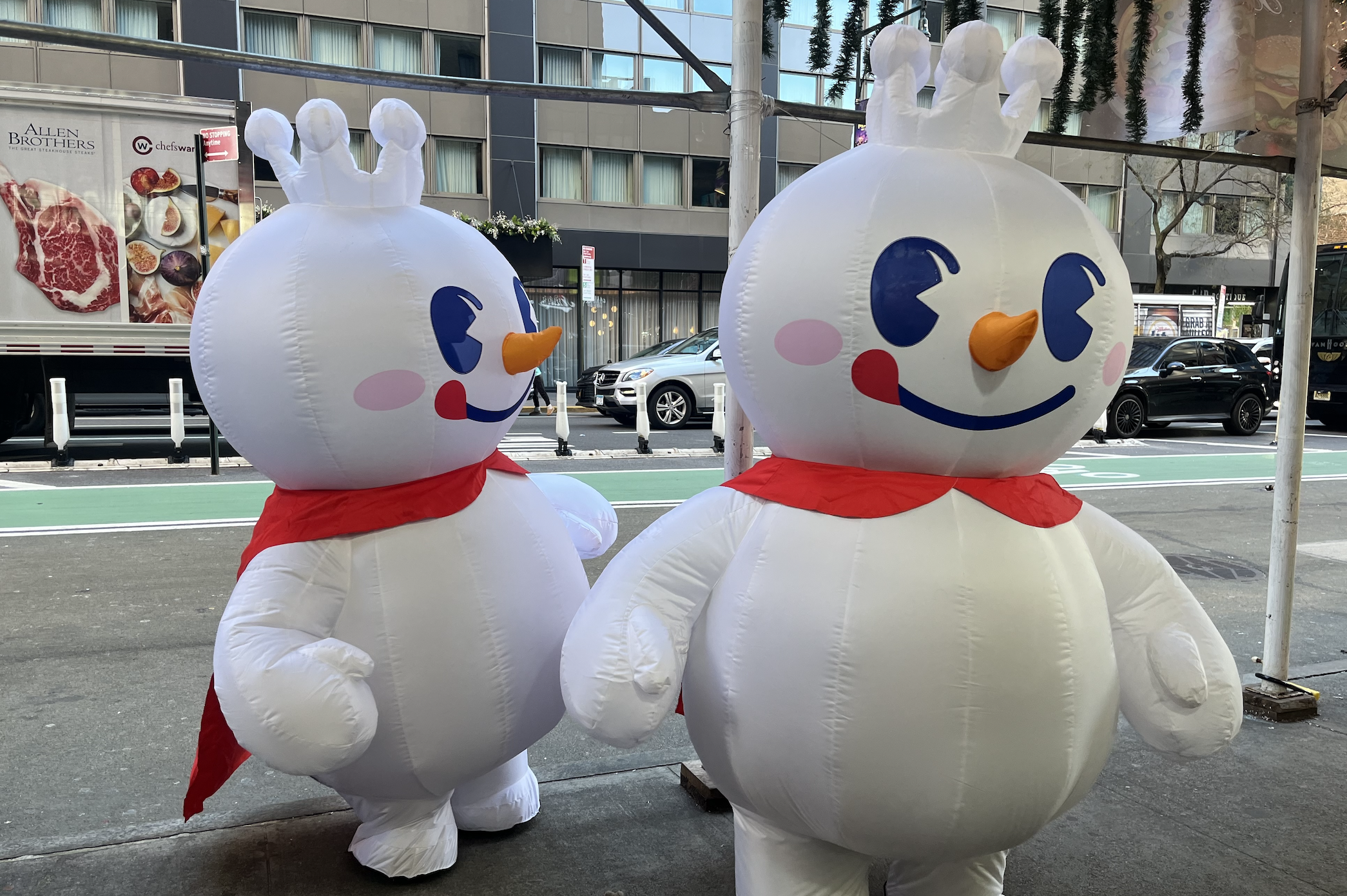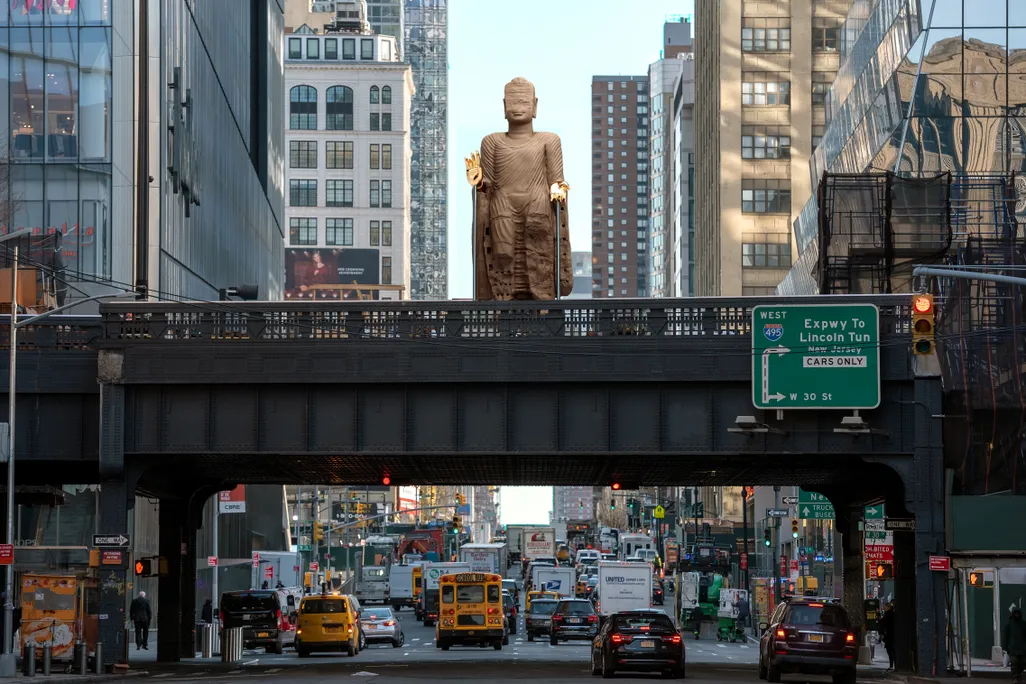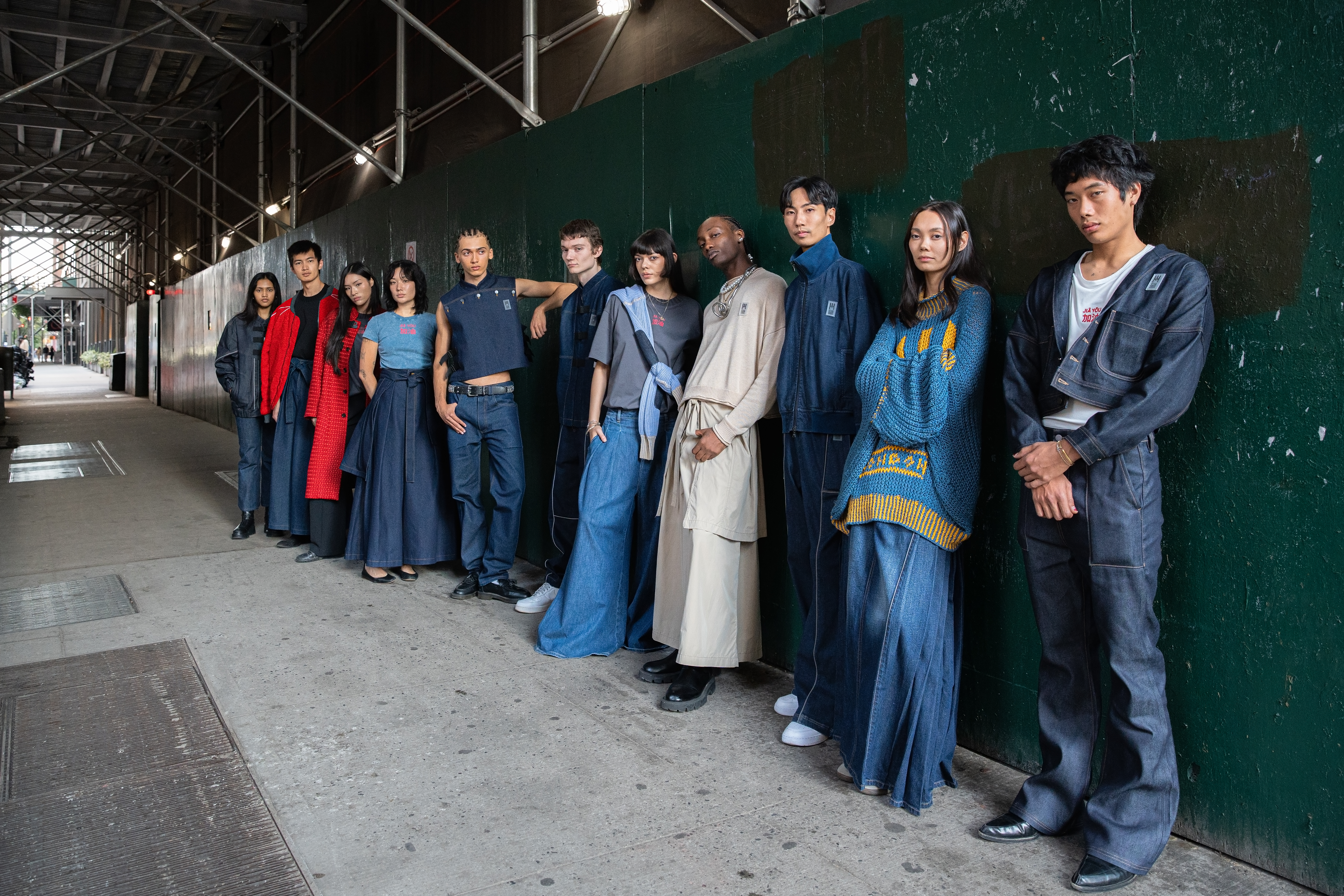New York City’s Chinatown reflects over a century of history — the fact that most New Yorkers can tell you where their favorite Chinatown restaurant is, and why, speaks to its impact on the city’s fabric.
But as the Covid-19 pandemic swept the United States, anti-Asian racism and xenophobia resulted in up to 70% losses for Chinatown businesses, causing unprecedented economic woes for the district and its residents.
Related:
 Volunteer Efforts are Keeping New York’s Chinatown Businesses AfloatThese efforts illustrate the devotion of Chinatown’s residents, young and old, to the communityArticle Oct 12, 2020
Volunteer Efforts are Keeping New York’s Chinatown Businesses AfloatThese efforts illustrate the devotion of Chinatown’s residents, young and old, to the communityArticle Oct 12, 2020
The silver lining, however, is that a younger generation of residents have been stepping up to ensure that Chinatown’s story doesn’t end in 2020.
On Friday, October 21, 2020, RADII hosted a live chat on our Instagram between writer Kevin Tinhua Hsia and Welcome to Chinatown founder Jennifer Tam. Welcome to Chinatown is an organization that provides free consultation and support for Chinatown’s small businesses, as well as monetary relief via their Longevity Fund.
Below are some edited highlights from their conversation. You can watch the full video embedded here:
On Why Chinatown
Tam: As early as January, during Chinese New Year, before any of the pandemic really hit New York, we saw first-hand that businesses were struggling. For us, we started to see some of our many longtime favorite spots start getting extremely quiet. One Friday night, we went to Hop. It’s normally popping on a Friday, and tables should have been full — but that night nobody was there, which was so weird.
A lot of the waiters have been working there for you know 10, 20 plus years, and we overheard them saying, “We’ve never seen business this bad before.” I think that’s really what sparked this idea of “is there anything that we can do to help?”
I think when the term “millennial” became mainstream, people pegged millennials as really self-centered and only looking out for themselves. It’s not entirely wrong, but at the same time, I think we are a generation that is really mission-driven.
For Vic and myself, especially as [first generation] Asian Americans, being mission-driven was especially important to us because a lot of Chinatown represents our identity.
On Connecting to Identity
Tam: We had a joke about it, but it’s also very true that we’ve never felt so Asian before. I grew up in a predominantly white neighborhood in Houston. I did not have a huge Asian community that I associated with growing up, so really when I moved to Chinatown, I saw a lot of people that looked like me and that was weird because it was a huge culture shock.
My entire life I spent battling between being too American or being too Asian. This experience with Welcome to Chinatown has honestly been very empowering, because it is hearing the stories of the small business owners that we work with that really inspire what it means to be Asian or Asian American living in America.
Hsia: I also grew up pretty far from any Chinese enclaves in the Midwest, but there is definitely a much different feel when you go anywhere where there’s been a much older, multi-generational community — somewhere like New York or San Francisco.
Related:
 “I Owe It to My Family”: Awkwafina Donates Music Revenue to Chinatown, Shares Personal StoryAwkwafina speaks up on NYC’s history, and her ownArticle Sep 19, 2020
“I Owe It to My Family”: Awkwafina Donates Music Revenue to Chinatown, Shares Personal StoryAwkwafina speaks up on NYC’s history, and her ownArticle Sep 19, 2020
On Building Trust
Tam: In hindsight, we should have expected […] that we were going to run into [not only] cultural and generational differences, but also language barriers.
My Chinese is not that great — I can barely hold a conversation — so really trying to have a conversation explaining something like, “We want to help you set up an e-gift card platform that we’re not taking any money for, as we’re a nonprofit” are all things that I could not communicate in Chinese.
And so in the limited amount of information I was able to communicate, it was also about establishing trust, and I think it is pretty innate within Chinese culture and Asian culture that you should look out for yourself. I don’t want to say it’s a “trust nobody” kind of situation, but it’s a very hardworking community, and so asking for help and receiving help can sometimes be a foreign concept.
In the first couple days when we were still trying to brainstorm exactly what we wanted to do, we went door to door to businesses asking if they wanted help. You know, we are two unknown faces that are just popping into their restaurant saying, “We want to give you money and we don’t want to take anything in return.” I think it’s pretty reasonable to say, “I don’t know if I trust you.”
So that’s where we realized we had to pivot and […] that’s kind of how our Feed our Heroes Initiative was born. We were able to explain that “we want to purchase anywhere from 30 to 50 meals from you” for a hospital or frontline workers who were still out there in the peak of the pandemic.
That was something they could grasp, and so that’s kind of like the first thing that we learned in starting this. It was about being able to quickly pivot, but also being able to package something that was easy to adopt for business owners today.
On Chinatown and Politics
Tam: I will say the one thing I think we’ve learned through this is local politics [are] really important for us as millennials to pay attention to.
Obviously right now we’re in a huge election cycle, but next year for New York City, we have the mayor’s seat up and a bunch of city council seats — including Chinatown’s — opening up. These are really important because those elected officials are the ones who in theory climb the ranks to take on bigger positions over time, so you really want to make sure you’re advocating or supporting the people who really fight for you and your communities. I would say from the local politics perspective, it’s extremely important. By no means am I an expert in local politics, but I think that has been one thing I wished I had paid more attention to earlier.
Hsia: Just because we’re on the topic of local politics, I just want to shout out Yu Lin Yu, who is one of the state assembly people that represents Chinatown and has done so so much for relief efforts, especially this year. So many people I talk to in Chinatown about the happenings of this year, her name comes up over and over, and I think politicians like that are people that are really worth paying attention to, so you can see what it is happens when leaders are engaged with people in the community and doing so much of the legwork — you can learn so many lessons from that that can be applied elsewhere.
Tam: I totally agree. I think sometimes residents and community members just want somebody to show up for them, and I think she’s done a really good job at doing just that. Especially when we were in the peak of the pandemic, she’s always used her voice and platform to bring visibility to a working class neighborhood.
Hsia: In the bigger picture, a lot of people want to know how the Trump administration has directly affected Chinatown. Is there reason to think if he was voted out of office that it would be any different?
Tam: With the Trump administration’s rhetoric, I really try to look at it from both sides of the aisle. It can be hard to do a lot of times, but what I hopefully think that people can agree on is using things like the “China virus” or calling it “kung flu” is not a good choice of words, and the rhetoric used is reckless. I think it was especially inconsiderate when he said that he didn’t believe it was offensive, when it really diminishes the value of a very significant population within the US.
With the way that it has impacted Chinatown specifically, I think with the way the administration has rolled out “updates,” if that’s what you want to call them, on [Covid-19], you didn’t even have to guess because you could see it right before your eyes that the foot traffic and business was down very significantly in Chinatown.
For example, Chinese New Year is one of the biggest events of the whole year — the streets are totally packed — and we had probably half the population. I had somebody from my hometown in Houston that was coming to visit New York with some friends asking if it was “safe” to visit Chinatown and I was like, “why wouldn’t it be?”
I think just that continuation of the rhetoric really puts false perceptions on what Chinatown represents, or what it does and does not have. It clearly did not have [Covid-19], but it does have an amazing community and great food and all that. It really was a damn shame that the administration did not help to prop up Chinatown when it really needed it.
Related:
 Black Lives Matter and Asian Communities: A Conversation with Bohan Phoenix and Jamel MimsCheck out the video and read highlights from an enlightening talk on BLM, China and moreArticle Jul 20, 2020
Black Lives Matter and Asian Communities: A Conversation with Bohan Phoenix and Jamel MimsCheck out the video and read highlights from an enlightening talk on BLM, China and moreArticle Jul 20, 2020
I think that the Obama and Biden era rung so true of inclusivity and belonging — if it became a Biden administration, I’d feel more confident in seeing that. Hopefully things will improve and I also hope that if there is a change in administration, Biden isn’t just going to ride on the coattails of the Obama years. He still also has his work cut out for him to give back and support minority businesses and minority communities.
Hsia: Yeah, I definitely agree with that. I think if people are paying attention, then they’ll know some rhetoric poses an immediate physical threat to our community. But if Biden is in office, there still would be a lot of work that had to be done, especially with all the hardships of this year — they need to make sure the right support and relief is being correctly organized.
On Chinatown Favorites
Tam: Oh man, Wo Hop is my tried and true — definitely have many fond memories there for all different sorts of occasions. It’s a great place for homestyle Cantonese cooking. I’m also still mourning the loss of Lung Moon Bakery for their egg tarts.
West New Malaysia for their curry fish head casserole dish — have it with five other people, and it’s so delicious. I’ll pick one snack item — Mei Li Hua, you just can’t go wrong with a pork bun from there.
Hsia: Yeah, [their] pork buns are really great. They sell them in the big boxes of 16. It’s also a good thing to bring over to the park.
Tam: A couple of Welcome to Chinatown volunteers were telling me that they have had the pineapple bun version of the char siu bao. They said that it is even better than the regular char siu version, so I’m gonna have to try that out for sure.
Hsia: That sounds really good.
Donate to Welcome to Chinatown’s Longevity Fund here.
Header image: Cindy Trinh



















